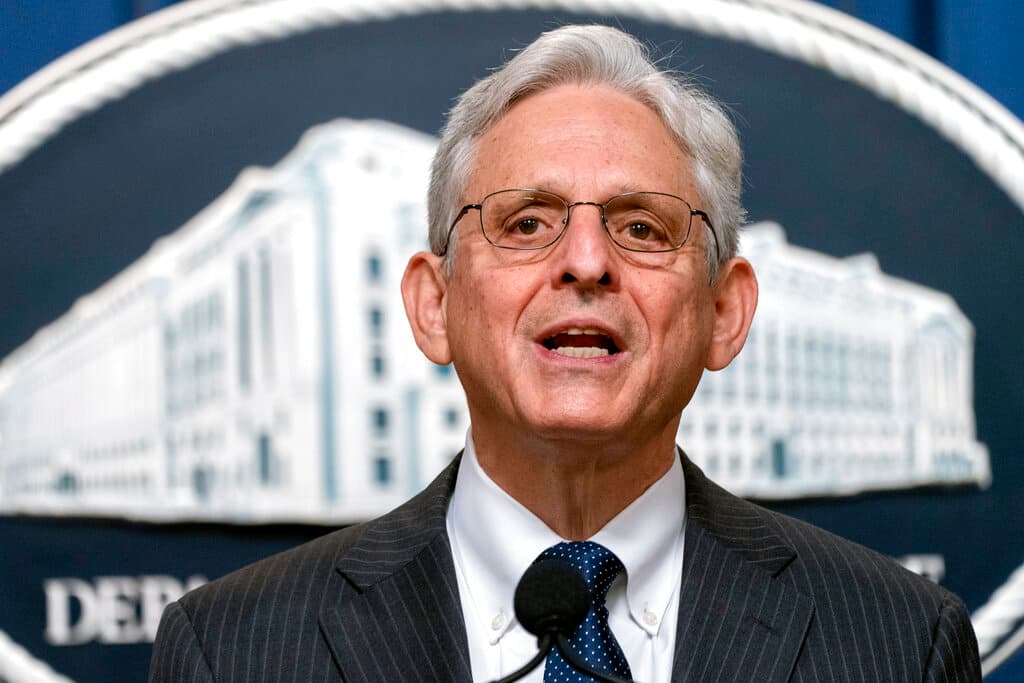Following Latest Episode of January 6 Hearings, All Eyes Turn to Merrick Garland
Will the attorney general emerge as a restraining figure against a rush to judgment?

After Episode 8 of the January 6 Committee hearings starring Representative Elizabeth Cheney, all eyes will now turn to the Department of Justice and Attorney General Garland, who will decide whether to charge President Trump.
Reports suggest that General Garland may be listening more to the policies laid out by his predecessor, Bill Barr, than to the urgings of his progressive critics. The attorney general could — might — turn out to be less the avenging angel Democrats hope for and instead play a restraining role.
Rachel Maddow of MSNBC reported that Mr. Garland in May reiterated support for a February 2020 memorandum issued by Mr. Barr on “election year sensitivities” and requiring the attorney general to sign off on investigations involving presidential candidates and their staff.
The Department of Justice has long issued guidance when it comes to charging political figures, guardrails erected to prevent the power of the prosecutor’s office from becoming a tool of partisan politics. These were codified in demarches from three attorneys general: Michael Mukasey in 2008, Eric Holder in 2012, and Loretta Lynch in 2016.
All of those documents ordain that one “may never select the timing of investigative steps or criminal charges for the purpose of affecting any election, or for the purpose of giving an advantage or disadvantage to any candidate or political party.”
The guidance issued by Mr. Barr went beyond that prosecutorial status quo, even as it endorsed “all existing policies,” in demanding the attorney general’s explicit authorization for new investigations involving presidential or vice presidential candidates or their senior staff. It now appears as if Mr. Garland has blessed those standards.
For his part, Mr. Barr this week took to Newsmax to express doubt regarding the January 6 committee, for which he sat for questioning. He told Greta Van Sustern his “main problem” with the panel is “the idea that the purpose of it is to develop a criminal case in Congress,” a violation of the separation of powers.
For some Democrats the memo is yet another indication that Mr. Garland is more inclined to hit the brakes than the accelerator. One former senator, Doug Jones, who was in the running to be President Biden’s pick for the job that went to Mr. Garland, nonetheless tweeted, “And, guys: It’s what we want,” regarding political prosecution.
The question of charging Mr. Trump in relation to the events of January 6 has come into fresh focus with the 45th president telegraphing increasingly clear signals that he intends to mount a presidential bid in 2024, with the Washington Post relaying that one of Mr. Trump’s confidants put the odds at “70-30” that Mr. Trump “announces before the midterms.”
While such an announcement would not strictly speaking trigger the enhanced scrutiny that has been codified at Justice — Mr. Trump would not appear on the ballot this fall — it would only add to the headaches that naturally adhere to haling into court a former commander in chief.
Mr. Garland could look to another source for guidance in the face of what would likely become the most momentous decision of his career. That would be an address titled “The Federal Prosecutor.”
In it, Justice Robert Jackson, then FDR’s attorney general, noted: “The prosecutor has more control over life, liberty, and reputation than any other person in America.” He concluded: “A sensitiveness to fair play and sportsmanship is perhaps the best protection against the abuse of power.”
Mr. Garland’s decision will now be informed by the latest episode of the January 6 committee, which focused on Mr. Trump’s actions that day during the 187 minutes between the end of the “Stop the Steal” rally at 1:10 p.m. and a video he released at 4:17 p.m. urging everyone to go home.
The episode painted a picture of the chief executive rooted to watching the events on Fox News from the presidential dining room, insensate to entreaties from his family and staff to issue a call for the mob to scatter. A video outtake from January 7 caught the president insisting, “I don’t want to say the election is over.”

